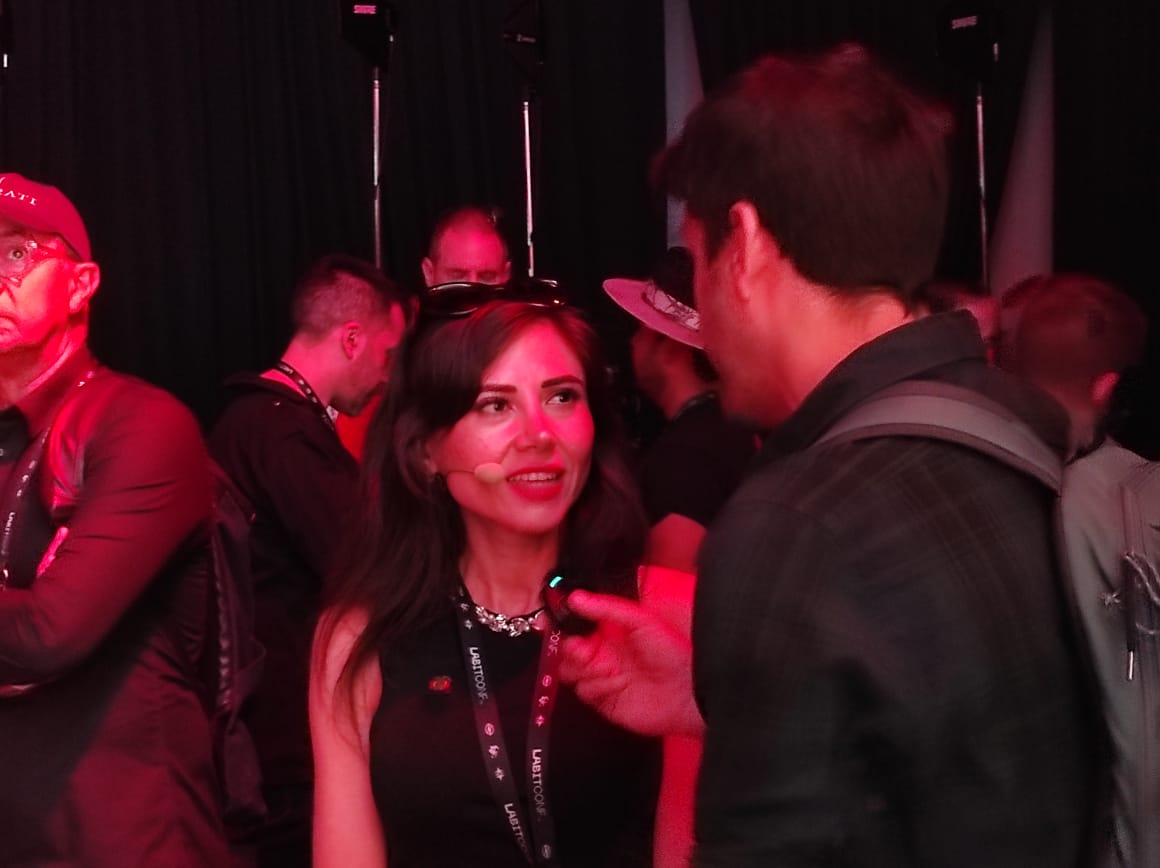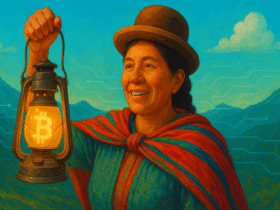Mariela Baldivieso, deputy of the Plurinational Legislative Assembly of Bolivia and representative of the Citizen Community party, spoke with CriptoNoticias in a one-on-one interview.
Throughout his political career, he has highlighted that Bitcoin and cryptocurrency technology is the solution to several of the economic problems that plague the country, for example, the shortage of dollars and the lack of financial inclusion of indigenous communities.
Baldivieso was elected in 2020 and from that moment on she became an active figure in promoting laws related to technological innovation, as well as the legalization and regulation of the use of cryptocurrencies in Bolivia.
The interview took place within the framework of LABITCONF 2024, which was held in Buenos Aires, Argentina, on November 1 and 2. “I am here to work and see what we can bring to Bolivia,” he highlighted.
How do you think the laws you are promoting to encourage the adoption of cryptocurrencies can impact Bolivia? What role can Bolivia play at the regional level?
Well, I want to tell you that in Bolivia we are easing an economic crisis thanks to the use of crypto assets. It is a positive thing, approximately 45 million dollars are being moved per month in the purchase and sale of crypto assets and that is because, recently, we have removed a restriction.
But it is not only about removing the restriction, we also work on the approval of laws. Two years ago we submitted two legislative proposals to open up and improve the situation to protect users of crypto assets in Bolivia and promote education in these technologies.
I think that Bolivia has a lot of potential, in fact I think that soon we will be topping the adoption lists. Venezuela is first, Argentina and I think that Bolivia will soon be in the top 5. Bolivians are merchants at heart and unfortunately the economic issue is limiting us and now we are quickly adopting this.
It was easy for us to adopt the QR, we are the number one Spanish-speaking country that has adopted the QR, so it will be much easier and faster to adopt and start generating, climbing the adoption lists.

You mentioned the removal of restrictions. How is the situation regarding PayPal’s arrival in the country, given that you are also an activist for this to happen?
For me, when I entered public management, it was sad to know that Bolivia was very behind in regulations. That was why we achieved the regulations that today allow payment gateways (platforms), whatever they may be, to reach Bolivia and establish themselves.
Unfortunately, PayPal has not yet been established, but we hope it will soon. I think it is due to an issue related to exchange rates, the official dollar and the blue dollar. It is an issue that countries like ours have to solve first before being able to receive this type of companies, but the doors are open and the regulations are already in place.
Regarding financial education, how do you work taking into account the technological limitations that currently exist in Bolivia?
Basically what we are doing is doing national tours, making alliances with blockchain associations in Bolivia and especially with universities to start giving the initial basic courses on what blockchain is. Because we know that cryptocurrency network technology can be used for absolutely everything. Also about the use of digital assets and how to avoid falling into scams.
Our mission is to collaborate with various NGOs to bring this education to indigenous communities, who may need another type of education to be able to use and improve the country’s economy through the pure use of cryptocurrencies.
These measures provide an answer to the problem of financial inclusion that, perhaps, the traditional banking system fails to reach certain sectors of the population…
Exactly, in the countryside we have people who produce large quantities of soybeans, for example, who are even exporting and it is difficult to receive payments or pay, make remittances or simply buy products to continue with their businesses.
It is so easy to do it and the commissions are so low that it really is a miracle for us. This type of technology allows us to work to bring this knowledge to all the people of Bolivia
Regarding mining, you mentioned during your presentation that it can be done through dead oil wells and, at the same time, it would serve as a tool to promote tourism in Bolivia.
In our legislative proposal, God willing, it is approved, we establish mining, that is, once this law is approved, a miner could be established. However, we have contacted several mining companies and they say that it does not have to be just any regulation, it has to be good regulation.
That is why we want to make the law but nevertheless we want to go deeper and make a regulation proposal for the executive, which is about mining, taking advantage of the fact that we have oil wells that are already dead, that no longer generate hydrocarbons, that do. If you apply technology you can generate energy to mine.






Leave a Reply